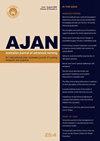加强家庭姑息治疗:一项全面的社区护理案例研究
IF 1.3
4区 医学
Q3 NURSING
引用次数: 0
摘要
本文补充的内容:*本案例研究表明,促进利用当地姑息治疗冠军或内部专家的专业知识的持续教育机会可以增强护理提供。*护理管理人员认为,在全科-专科姑息治疗伙伴关系中,全科服务,特别是家庭护理服务的价值需要得到理解和尊重。*考虑到这一流动劳动力的独特挑战,在家庭护理方面进行量身定制的投资以提供一般姑息治疗方法将是有益的。关键词:姑息治疗;居家照护服务;教育、护理这种照顾延伸到家庭成员,包括身体、心理、社会和精神支持。家庭护理和护理组织是社区姑息治疗的主要提供者,在支持姑息治疗客户、组织和提供护理、协调其他专业人员和专业设备的投入方面,工作人员往往是关键以往的研究已经发现,家庭护理护士在满足病人的缓和疗护需求时,如症状管理和沟通等,面临的困难,以及需要进一步的培训,以提高他们照顾缓和疗护病人的知识和信心。在这种情况下,全科姑息治疗是由具有广泛临床责任的卫生保健专业人员提供的,他们提供初级的、持续的护理,并与患者及其护理社区建立了关系这与专业姑息治疗服务不同,后者通过多学科团队和专业姑息治疗培训来支持复杂需求。专题分析确定了以下主要主题:1)有针对性的教育提高了员工的知识和信心,但还需要更多的教育;2)具有有效沟通和信息共享的协作团队是成功的通才合作伙伴关系的基础;3)家庭护理环境是独特的,需要可访问的系统和流程。本文章由计算机程序翻译,如有差异,请以英文原文为准。
Enhancing palliative care at home: a generalist community nursing case study
What this paper adds: * This case study demonstrated that facilitating ongoing education opportunities that draw on the expertise of local palliative care champions or internal specialists can enhance care provision. * Nurse care managers believe the value of generalist services, particularly home care services, in the generalist-specialist palliative care partnership, needs to be understood and respected. * Tailored investment in home care to provide a general palliative approach would be beneficial given the unique challenges of this mobile workforce. Keywords: Palliative care;home care services;Education, Nursing;qualitative research;Nurse Practitioner BACKGROUND Palliative care focuses on improving the quality of life of people affected by life-threatening illnesses, including the prevention and relief of suffering through identification, assessment and treatment.1 This care extends to family members, and encompasses physical, psychological, social and spiritual support. Home nursing and care organisations are key providers of community-based palliative care, with staff often the linchpin, in supporting palliative clients, organising and providing care, coordinating the input of other professionals and of specialist equipment.5 Previous research has identified the difficulties faced by home care nurses in meeting their clients' palliative care needs, such as symptom management and communication, as well as requirements for further training to enhance their knowledge and confidence of caring for palliative clients.5-7 In this context, generalist palliative care is delivered by health and care professionals with broad clinical responsibilities who provide primary, ongoing care;and have established relationships with the person and their care community.2 This is distinct from specialist palliative care services which support complex needs through multidisciplinary teams with specialised palliative care training. FINDINGS AND DISCUSSION Thematic analysis identified the following overarching themes: 1) targeted education increased staff knowledge and confidence, but more is needed;2) collaborative teamwork with effective communication and information sharing underpins a successful generalist-specialist partnership;3) the home care setting is unique and requires accessible systems and processes.
求助全文
通过发布文献求助,成功后即可免费获取论文全文。
去求助
来源期刊
CiteScore
2.30
自引率
7.10%
发文量
27
审稿时长
>12 weeks
期刊介绍:
The Australian Journal of Advanced Nursing publishes a wide variety of original research, review articles, practice guidelines, and commentary relevant to nursing and midwifery practice, health- maternity- and aged- care delivery, public health, healthcare policy and funding, nursing and midwifery education, regulation, management, economics, ethics, and research methodology. Further, the journal publishes personal narratives that convey the art and spirit of nursing and midwifery.
As the official peer-reviewed journal of the ANMF, AJAN is dedicated to publishing and showcasing scholarly material of principal relevance to national nursing and midwifery professional, clinical, research, education, management, and policy audiences. Beyond AJAN’s primarily national focus, manuscripts with regional and international scope are also welcome where their contribution to knowledge and debate on key issues for nursing, midwifery, and healthcare more broadly are significant.

 求助内容:
求助内容: 应助结果提醒方式:
应助结果提醒方式:


